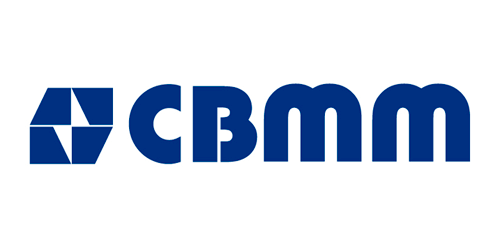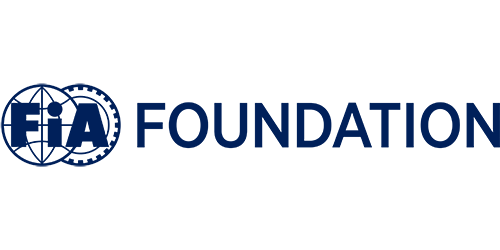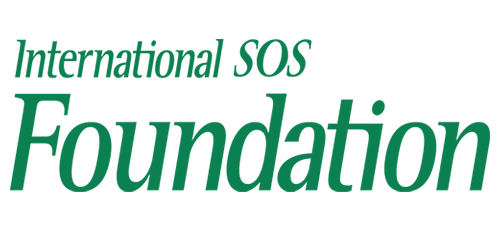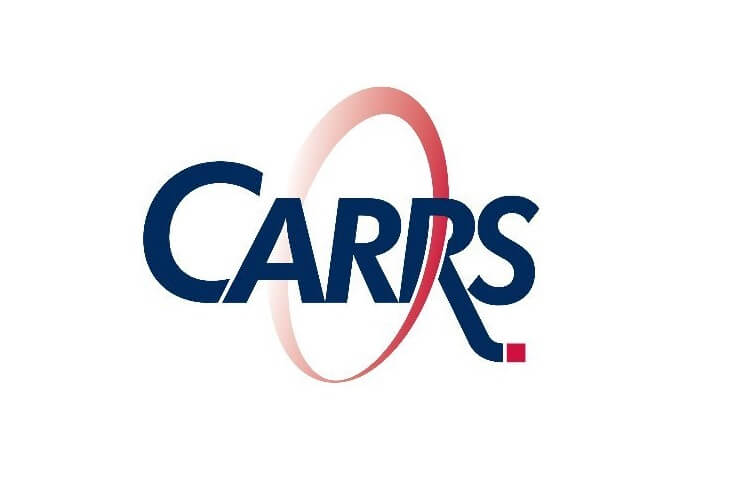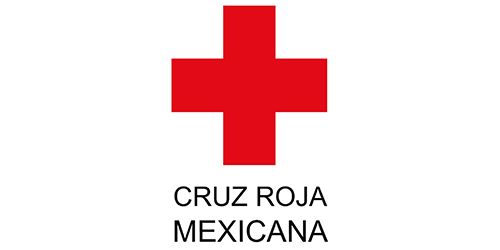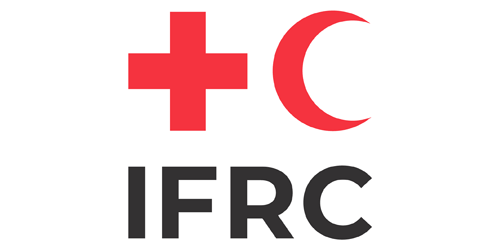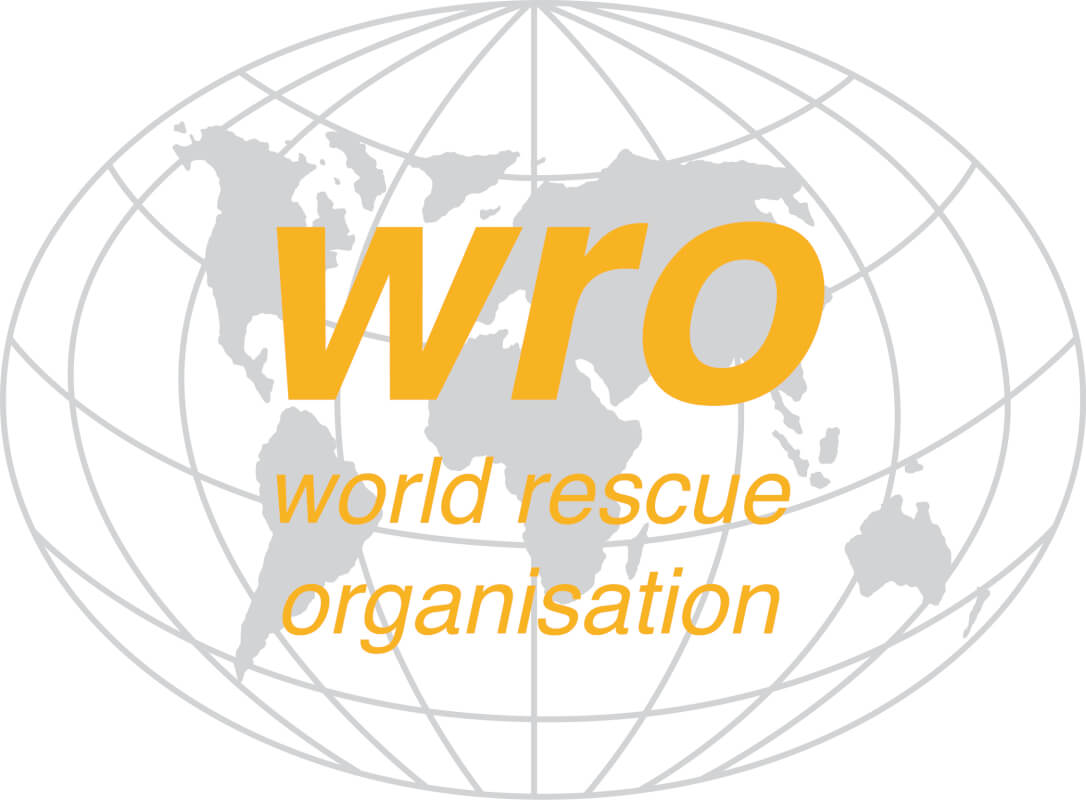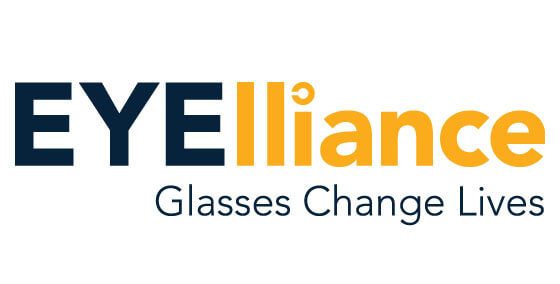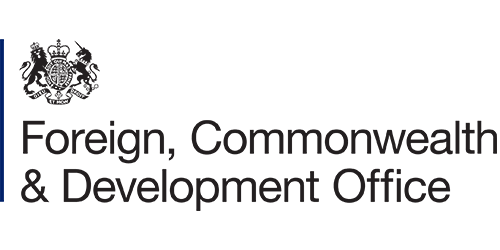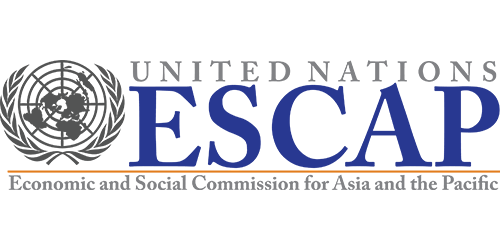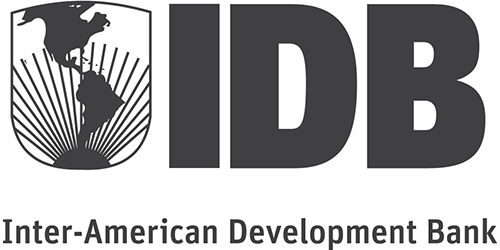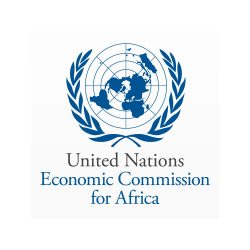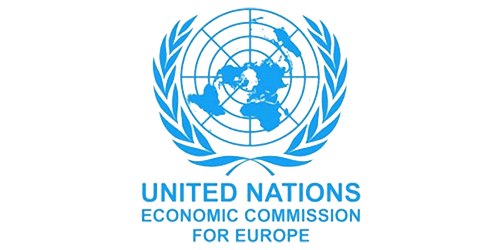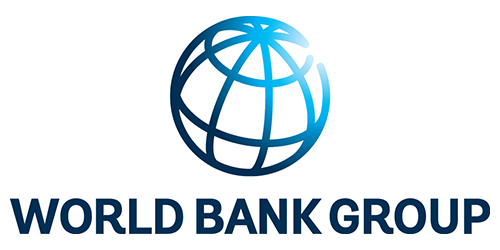
Last year we encountered many emergencies that have fully engaged our National Societies. The COVID pandemic was only one of them, albeit a hugely disruptive one. Throughout 2021, the International Federation of Red Cross and Red Crescent Societies (IFRC) has supported National Societies around the world to fulfil their potential as effective local humanitarian actors.
More »
Last year we encountered many emergencies that have fully engaged our National Societies. The COVID pandemic was only one of them, albeit a hugely disruptive one. Throughout 2021, the International Federation of Red Cross and Red Crescent Societies (IFRC) has supported National Societies around the world to fulfil their potential as effective local humanitarian actors.
As we continue to work within challenging times, we remain committed to supporting their long-term development and programmes. In addition, we tailor our support to each National Society’s contexts, needs and priorities.
One area of work that is increasingly being explored by National Societies is Road Safety. In part we have seen this in the development of First Aid geared specifically toward post-crash care, but we are also engaging more and more in injury prevention.
To this end, the relationship with the Global Road Safety Partnership (GRSP) has been of paramount importance. With their international expertise and vision, the GRSP has built the capacity of National Societies across the globe in road safety, advocacy, and road safety education in schools.
The collaboration between National Societies and the GRSP provides for 360° interventions that look at road safety with a two-pronged approach: pre-crash injury prevention and post-crash care. This approach provides extraordinary support to improve road safety and reduce trauma at the local level.
To respond to victims only, is not sufficient; we need to work to prevent people from becoming crash victims in the first place by decreasing the number of road deaths and injuries, and the related emotional and economic burden on affected families.
Last year was a particularly important one for Road Safety. Amidst the COVID 19 pandemic, 2021 was the first year of the Second Decade of Action for Road Safety with the ambitious target of reducing road traffic deaths and injuries by at least 50% by 2030.
More »Last year was a particularly important one for Road Safety. Amidst the COVID 19 pandemic, 2021 was the first year of the Second Decade of Action for Road Safety with the ambitious target of reducing road traffic deaths and injuries by at least 50% by 2030.
This is an exciting goal; but a difficult one too. To achieve it, there is the need for a renewed commitment to working collaboratively across all parts of the road transport system. When road safety improves, we all benefit from this public good that we can all contribute to.
The business case for investing in road safety is compelling and the ethical and humanitarian benefits are clear.
To reach the goal that we have set for ourselves, as members of the international community, we need to recognize that partnerships and collaboration are more important than ever before. Together we can go the extra mile that will make the difference.
To do that, we need an alignment in terms of activities and funding. We need partners like the Global Road Safety Partnership (GRSP) that can provide technical knowledge of what we know works, vision, and international expertise. Through the GRSP, we are continuing to engage with the network of Red Cross and Red Crescent societies on the ground and extraordinarily well positioned to champion improving road safety within local communities.
By engaging with communities at the local level, we can change the understanding of ordinary people about the importance of improving road safety, from an old and dusty subject to a topic that is at the forefront of political and public debate. Road traffic deaths and injuries place an enormous burden on us all, but the scale of the problem and costs are often overlooked. We all are called upon to act to prevent them.
The opportunity is now. The time is ours. Working together and keeping focused on our objectives will mean that we can prevent road traffic deaths and injuries and all the pain, suffering and economic costs they cause.
As Chair of the GRSP, I am immensely proud of our achievements over the past year and we will continue to focus on actions that we know work to reduce road trauma such as those that are explained in this summary report on our 2021 activities and achievements.
As we continue to deal with the social and economic effects of the global COVID-19 pandemic; the pandemic’s impacts on road traffic deaths and injuries across the world have been mixed. During 2021, COVID-related restrictions were applied and traffic volumes in some countries decreased, while speeds on quiet uncongested roads often increased.
More »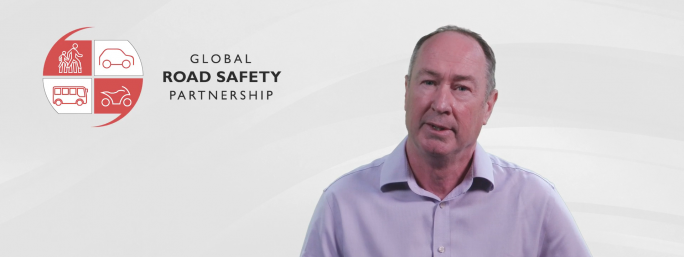
As we continue to deal with the social and economic effects of the global COVID-19 pandemic; the pandemic’s impacts on road traffic deaths and injuries across the world have been mixed. During 2021, COVID-related restrictions were applied and traffic volumes in some countries decreased, while speeds on quiet uncongested roads often increased. This resulted in serious crash frequency and severity worsening. Some parts of the world experienced lower use of public transport as people tried to avoid exposure to the virus with increased walking, cycling and use of motorcycles and micro-mobility. This, in turn, resulted in a rise in collisions involving vulnerable road users.
In other places, cities acted rapidly to establish temporary cycle lanes and the global #Love30 campaign strongly advocated for the introduction of 30 km/hour speed limits where vehicles regularly interact with vulnerable road users. Both of these initiatives resulted in greatly improved road safety.
At the same time, other countries moved to reduce highway and rural speed limits in response to both the climate crisis and the desire to improve road safety. The Global Road Safety Partnership (GRSP) continues to reinforce the message that lower speeds result in lower levels of road trauma, lower fuel use and, additionally, much lower greenhouse gas emissions. The physics of the argument is clear, and we will continue our efforts to show the links between reducing travel speeds, improving road safety and critical sustainability benefits.
Other effects of the pandemic have included delays in the delivery of road infrastructure programmes, a slowdown in the manufacture of new and safer vehicles, delays in enacting important road safety-related legislation and reductions in road policing. The array of effects has varied significantly across the world; in that sense, over the coming year we expect the overall impact of the pandemic on road crash death and injury rates to become clearer.
However, the last year has highlighted that maintaining a focus on reducing road trauma continues to be a major global challenge and one that will require our constant attention.
This report catalogues the international achievements of the GRSP; achievements that include successfully advocating for improved road safety legislation, producing road safety manuals and delivering training and education programmes. We made the roads safer for children in many countries and helped to educate police officers with skills to allow them to reduce road trauma and investigate serious crashes more thoroughly. We delivered a range of other initiatives that are captured within this 2021 annual report.
Partnerships are central to the work of the GRSP. The achievements of 2021 are due to a dedicated team of staff and consultants who have continued to enjoy the ongoing support of our members, donors, grantees, partners and the International Federation of Red Cross and Red Crescent Societies (IFRC) as our host. The combined support and commitment to these partnerships continue to contribute to our vision of a world free of road crash death and injury.
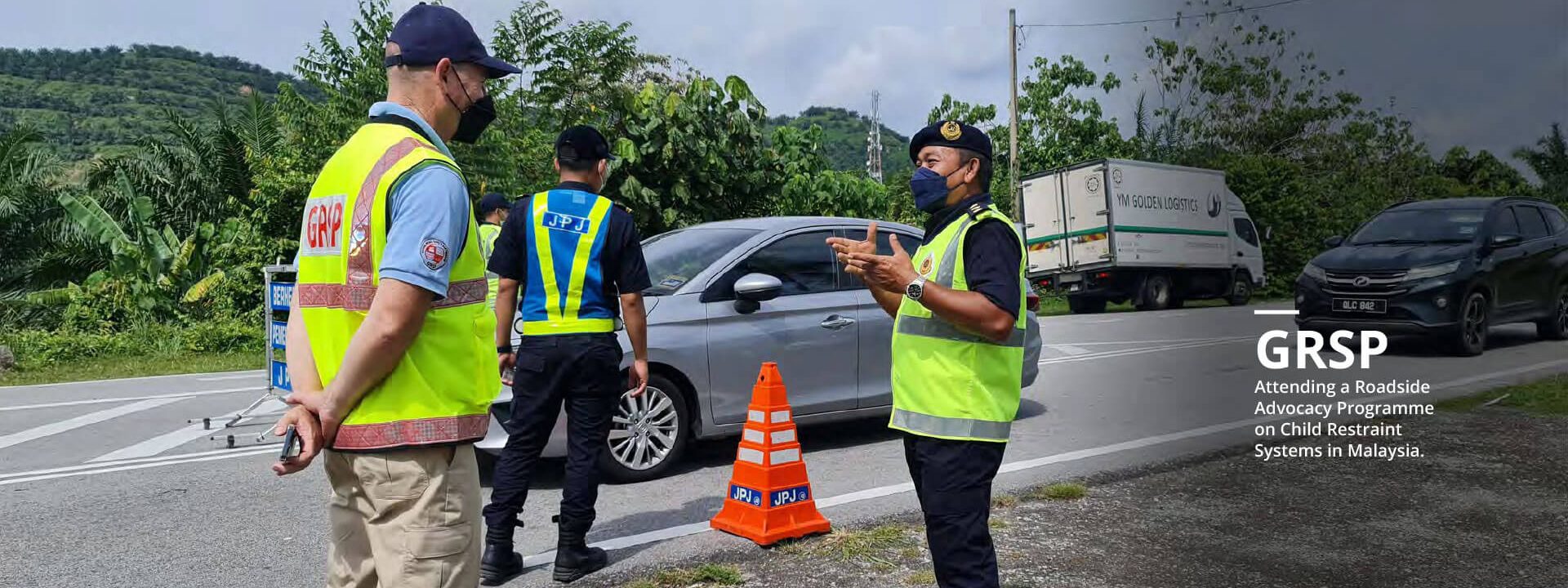
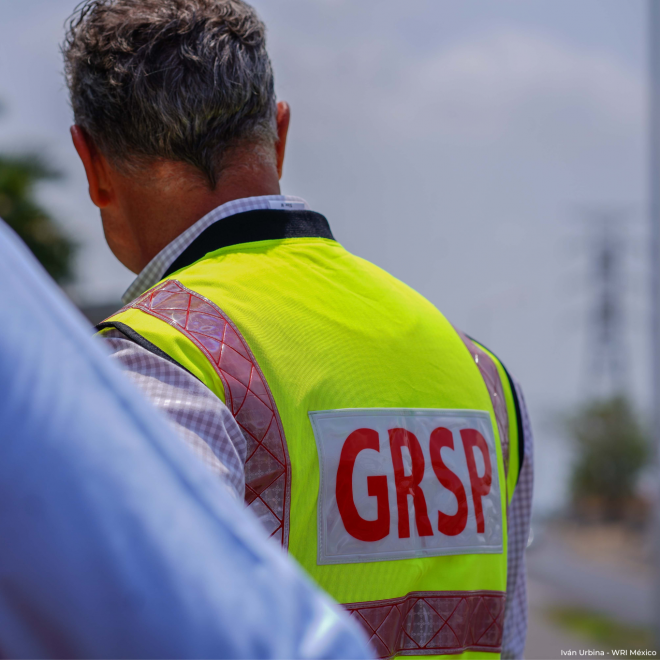
GRSP is a non-profit organization that was formed in 1999 in response to global recognition of road crash deaths and injuries as a human-made health crisis. Hosted by the International Federation of the Red Cross and Red Crescent Societies (IFRC), we are governed through a constitution approved by a Steering Committee of our members and work in line with the Strategic Plan 2022 to 2030.
Our members are leading multi- and bi-lateral development agencies, governments, businesses, and civil society organizations.
Our role is to create and support multi-sector road safety partnerships that are engaged with front-line good practice road safety interventions in countries and communities throughout the world. We play a powerful role in capacity building and training of road safety practitioners and traffic police, engage actively in advocacy at all levels, provide road safety programme coordination at the global level, and are a recognized expert source of road safety knowledge and good practice.








We form partnerships between the private sector, civil society and governments to apply best practice road safety policy and practice, primarily in low- and middle-income countries and can utilize our extensive network of partners to reach every corner of the globe.
We act with the humanitarian values and ethics of the IFRC as our guiding principles.
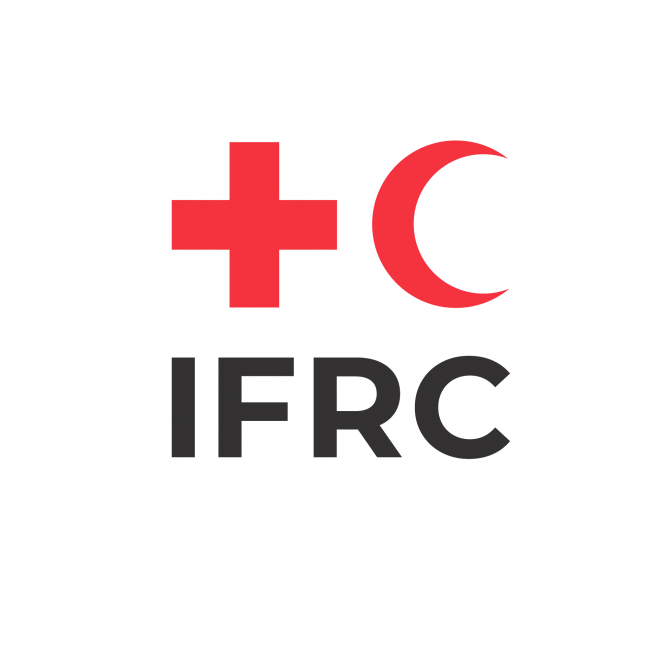
Founded in 1919, the International Federation of Red Cross and Red Crescent Societies (IFRC) is one of three components of the International Red Cross and Red Crescent Movement – the world’s largest humanitarian network, providing assistance without discrimination as to nationality, race, religious beliefs, class or political opinions. The other components are the 192 National Societies and the International Committee of the Red Cross.
The IFRC, through its 1998 World Disasters Report, became one of the first organizations to ring the alarm bell about the catastrophic number of traffic deaths and injuries at the global level, and their dramatic consequences on people and livelihoods. In response to the report, the IFRC, the World Bank and the British Government’s Department for International Development (DFID), now the Foreign and Commonwealth Office (FCO), decided to create the Global Road Safety Partnership to bring together governments and governmental agencies, the private sector and civil society to urgently address road safety issues.
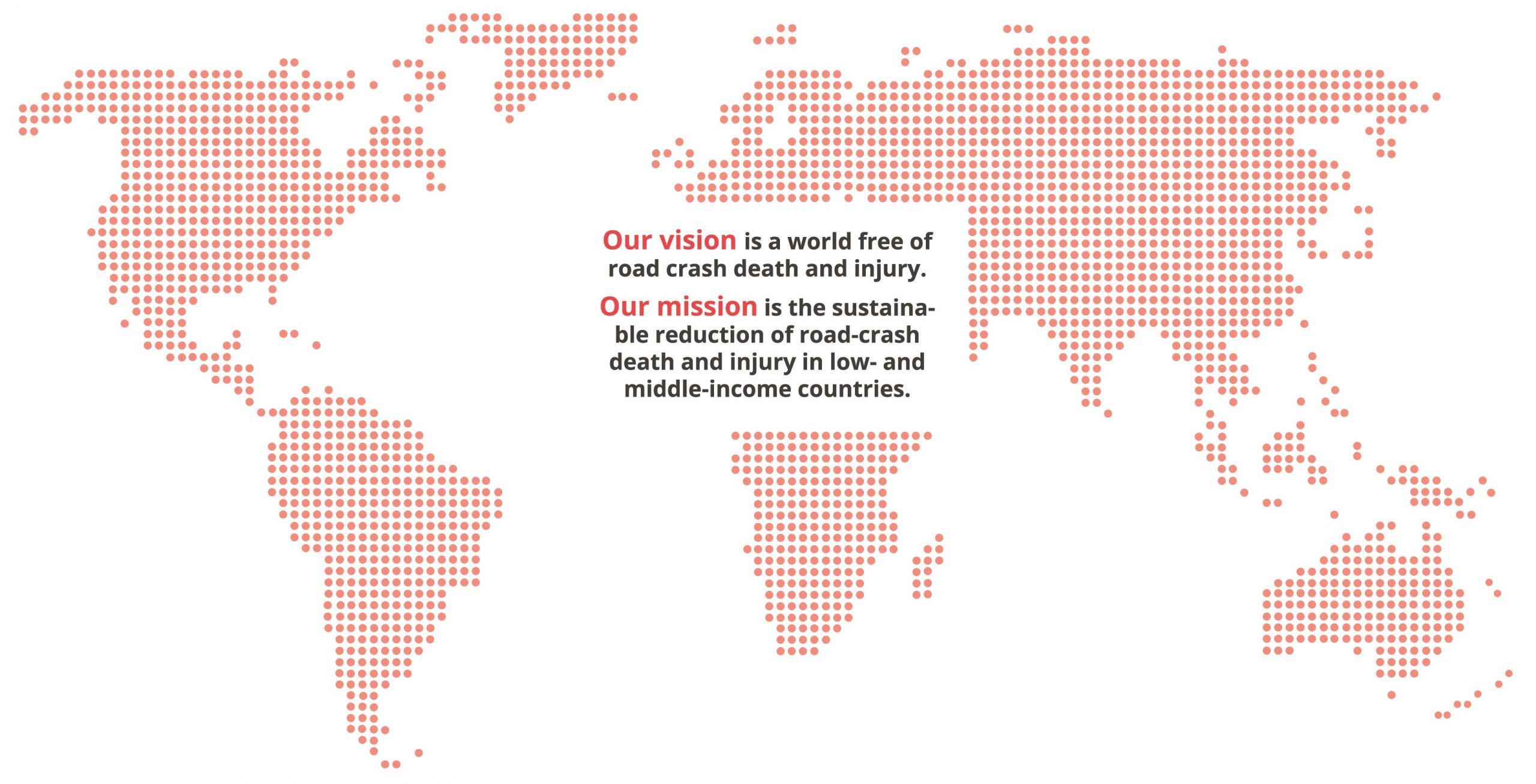
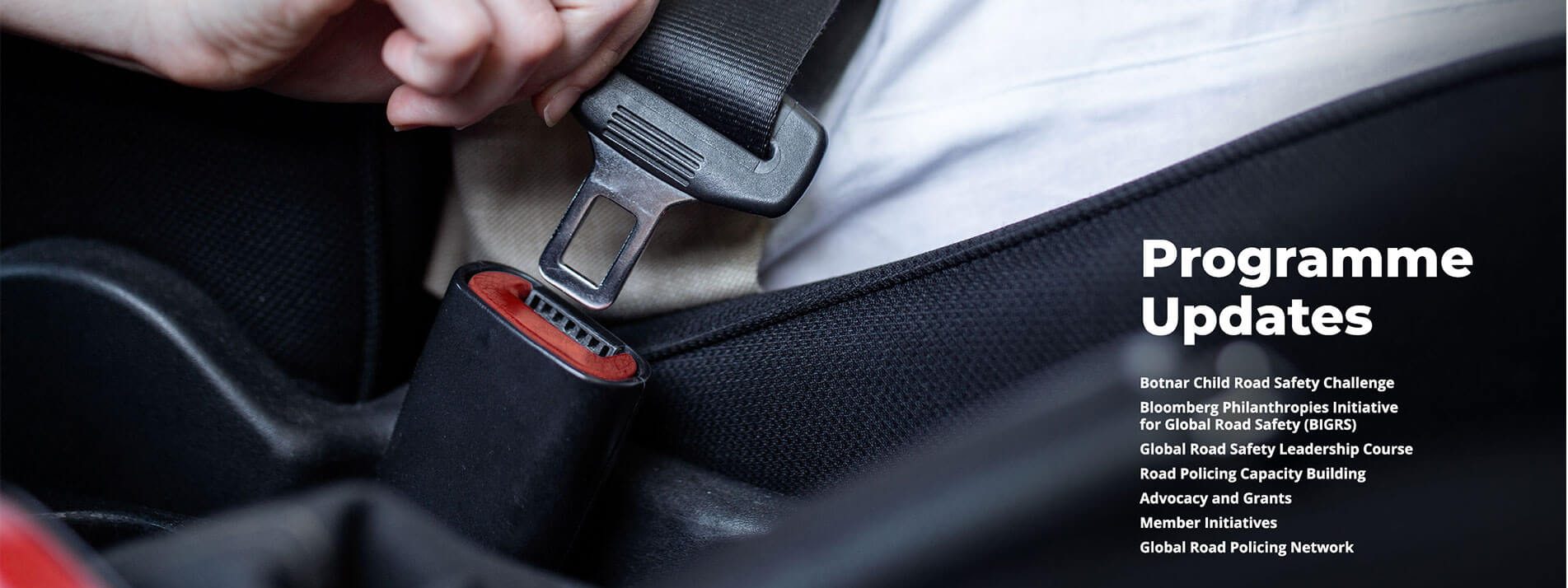
During the 2021 year, the Botnar Child Road Safety Challenge (BCRSC) overcame waves of restrictions and lockdowns in the seven countries of operations, as the virulent COVID-19 Omicron and Delta variants spread globally. Adapting to the “new normal” and mode of working, the 11 Phase 2 projects were deep into their implementation phase and we have been pleased to see some exciting outcomes that are vastly different from that of Phase 1. Youths in India have been engaged and empowered through two innovative Tech Challenges.
In Viet Nam, Plan International completed a study on the perception of gender, sex, gender inequity, sexual harassment and girl safety on public transport, along with conducting training sessions on female adolescent mobility safety for 69 transit staff in Thai Nguyen. WRI Mexico continued their development of an open-source, data visualization platform with government stakeholders, which shall geo-reference traffic and road crashes in Colima. FCA is working with the IT-Cluster in Cluj and the private sector to create a Child Restraint Systems App, which will be a first for Romania.
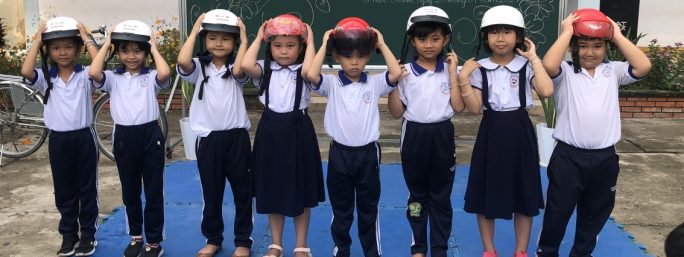
During the 2021 year, the Botnar Child Road Safety Challenge (BCRSC) overcame waves of restrictions and lockdowns in the seven countries of operations, as the virulent COVID-19 Omicron and Delta variants spread globally. Adapting to the “new normal” and mode of working, the 11 Phase 2 projects were deep into their implementation phase and we have been pleased to see some exciting outcomes that are vastly different from that of Phase 1. Youths in India have been engaged and empowered through two innovative Tech Challenges.
In Viet Nam, Plan International completed a study on the perception of gender, sex, gender inequity, sexual harassment and girl safety on public transport, along with conducting training sessions on female adolescent mobility safety for 69 transit staff in Thai Nguyen. WRI Mexico continued their development of an open-source, data visualization platform with government stakeholders, which shall geo-reference traffic and road crashes in Colima. FCA is working with the IT-Cluster in Cluj and the private sector to create a Child Restraint Systems App, which will be a first for Romania.
The cumulative count for the number of engineering remediations globally has now reached 52, with evidentiary speed reductions realized, as exemplified in our project in Tanga, Tanzania, with Amend and our project in Pleiku, Viet Nam, with the Asia Injury Prevention Foundation.
The GRSP Botnar team members are particularly proud of these outcomes as the global road safety field leaps into the Second Decade of Action, launched in October 2021, where Phase 2 of the BCRSC programme is practically leading the way and pushing the field forward in terms of the type of project objectives that mirror the resolution ratified by the United Nations General Assembly. These include embracing thematic areas such as the use of technology, youth participation and promoting active, sustainable, safe, accessible and affordable modes of quality transport.
For more up-to-date, from-the-ground information regarding the BCRSC programme, you can follow the #BCRSC hashtag on social media.




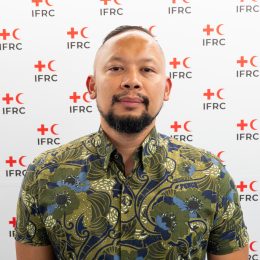
The GRSP Botnar team continued to support grantees through the ebbs and flows of COVID-19 restrictions. It was a challenging global environment in which to implement complex, multi-sectorial road safety projects. Looking back, we are pleased to have weathered the storm and come through with many lessons learnt.
Atsani Ariobowo
Manager, Road Safety Projects
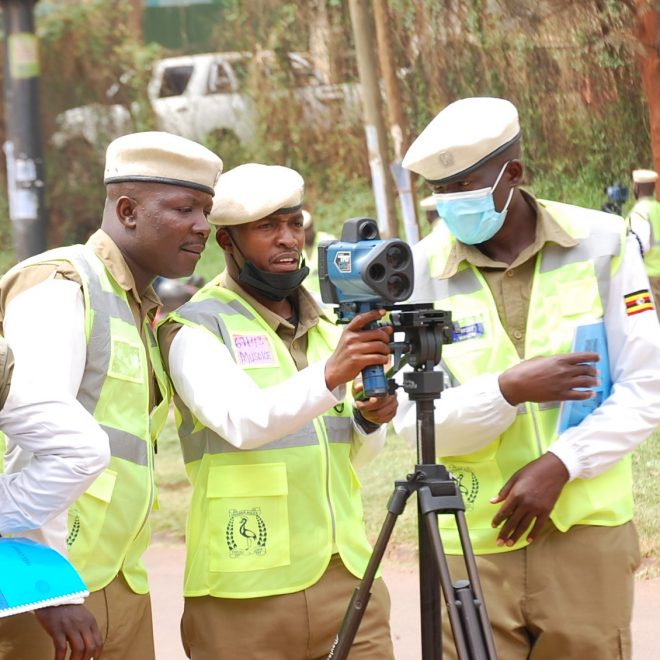
At the beginning of 2021, we entered the second year of the six-year BIGRS Initiative – the Bloomberg Philanthropies Initiative for Global Road Safety (2020-2025). In 2020, the global pandemic had forced us to radically reconsider how we delivered our parts of the BIGRS programme: the Road Policing Capacity Building programme, the Road Safety Advocacy and Grants programme and the Global Road Safety Leadership Courses. The GRSP BIGRS team expanded in 2021, with several new team members joining to help support the growing number of countries and cities that signed up to be part of this global initiative. It was reaffirming to learn that new people wanted to join GRSP to further strengthen our ability to deliver high quality, evidence-based programmes.
For most of 2021, we continued to operate virtually, providing technical and operational support to enforcement agencies, and technical and financial support to NGOs and government agencies that were successful applicants to the Road Safety Grants programme. In addition, we were able to continue providing world-class training to road safety practitioners as part of the suite of Global Road Safety Leadership courses offered in collaboration with Johns Hopkins University. This included a new offering – the Road Policing Executive Leadership Course, aimed at senior police officers serving in the BIGRS Asian countries.



Late in the year, we experienced a glimmer of the illusive light at the end of the long pandemic tunnel when one of our Road Policing team members travelled to Addis Ababa and Kampala to deliver speed enforcement training. The welcome was warm and the in-person training well received. It reminded me of the profound significance of personal connection with our in-country and international partners; something the GRSP BIGRS team is enthusiastically looking forward to re-experiencing.
Dr. Judy Fleiter
Global Manager
Despite the ongoing challenges of travel restrictions resulting from the COVID 19 pandemic, the GRSP team was able to work with our partner, the Johns Hopkins University International Injury Research Unit (JH-IIRU), to deliver three programmes from the suite of Global Road Safety Leadership Course (GRSLC) offerings in 2021. From April to June, we delivered our second online offering of the GRSLC: Initiative Partners, where we engaged 99 participants from 20 countries in an extended six-week course that included new modules focusing on road safety legislation and policy advocacy. The participants were drawn from BIGRS partner staff, as well as grantees of the Road Safety Grants Programme and the Botnar Child Road Safety Challenge. Delivery of the course was supported by our BIGRS partner organizations, and the additional focus on legislation and advocacy was well-received amongst all participants.
From November to December, the inaugural Road Policing Executive Leadership Course (RPELC) was held online for police and enforcement officials in BIGRS priority cities in Asia. Eighteen high-level senior officials from India and Bangladesh joined the course, which was jointly delivered by the GRSLC team and the Road Policing Capacity Building Programme experts.
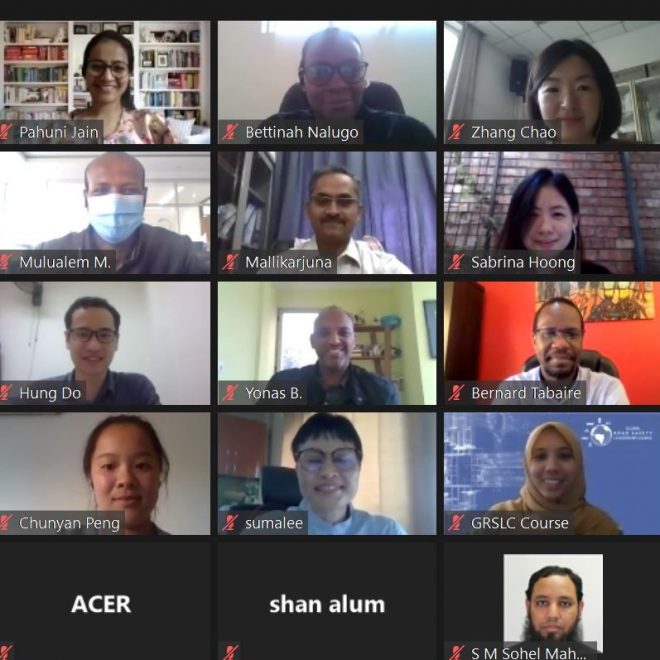
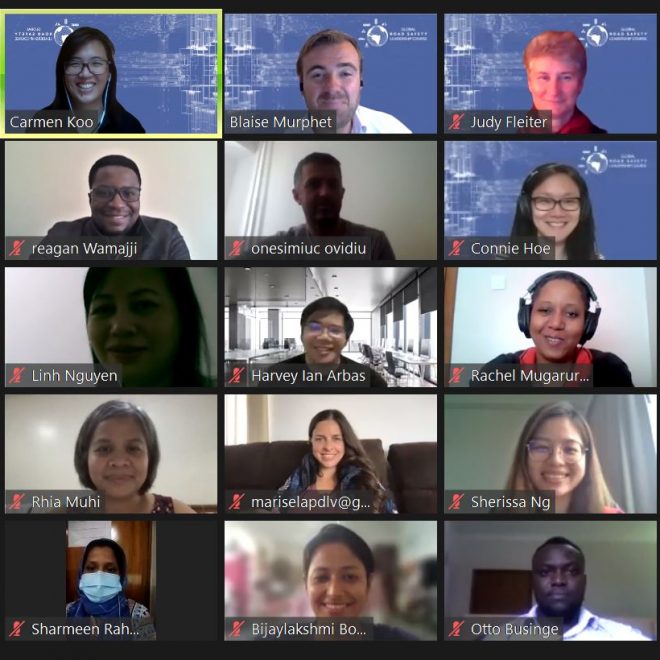
This innovative course aimed to build organizational leadership capacity among police by introducing the key concepts underpinning evidence-based road safety interventions and contemporary best practice enforcement to contribute to improved and sustainable road policing and road safety outcomes. The course included guest presentations from the International Association of Chiefs of Police (IACP), Vital Strategies and senior enforcement officials from India and Australia.
A further offering within the GRSLC suite that launched in 2021 was the inaugural GRSLC Alumni Fellowship, which is a programme aimed at increasing the capacity of road safety professionals in low- and middle-income countries to bridge the gap between knowledge and practice through a mentored road safety project. The Fellowship Programme is a 1-year engagement for select alumni of the GRSLC and the initiative launched with three Fellows who are implementing dedicated projects in Mexico, Malawi and Thailand.



In 2021, we were delighted to not only extend our online GRSLC Initiative Partners course to almost 100 more people who also benefitted from new modules on legislation and advocacy, but also to deliver for the first time the Road Policing Executive Leadership Course to senior enforcement officials in Asia. This course highlighted the impact we can achieve by combining areas of knowledge including best practice policing, broader road safety approaches and specific topics focusing on enabling strong leaders. Launching our first cohort of GRSLC Alumni Fellows also represented a significant moment for the course, with the start of a new process of rich and detailed engagement with our course alumni to further expand their leadership to address road trauma globally.
Blaise Murphet,
Asia-Pacific Consultant
Whilst the COVID-19 pandemic continued to cause much uncertainty to the delivery and schedule of the Road Policing Capacity Building programme (RPCB), it has also highlighted the resilience of the team and partners who continued to adjust and adapt to the fluidity of training schedules, workshops and competing priorities. The second year into the third phase of the Bloomberg Philanthropies Initiative for Global Road Safety (BIGRS) programme saw 49 workshops delivered in 2021, equating to 1,344 police and enforcement officers from various cities trained in the areas of road policing leadership and management, speed enforcement and standard operating procedures, intelligence-led policing, strategic management and operational planning, and crash investigation.
Following the success of virtual deliveries conducted earlier in the year through the power of technology, there was a hopeful opportunity in Q3 to deliver our first in-person training since the outbreak of the global pandemic. With some travel relaxations, the team grasped the opportunity for a refreshing and impactful change as our senior road policing officers delivered both theoretical and practical trainings in speed enforcement in Addis Ababa and Kampala in-person.
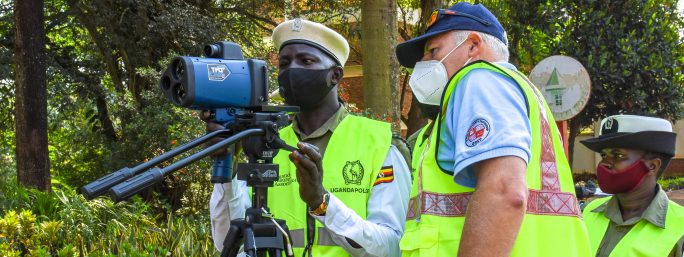
Whilst the COVID-19 pandemic continued to cause much uncertainty to the delivery and schedule of the Road Policing Capacity Building programme (RPCB), it has also highlighted the resilience of the team and partners who continued to adjust and adapt to the fluidity of training schedules, workshops and competing priorities. The second year into the third phase of the Bloomberg Philanthropies Initiative for Global Road Safety (BIGRS) programme saw 49 workshops delivered in 2021, equating to 1,344 police and enforcement officers from various cities trained in the areas of road policing leadership and management, speed enforcement and standard operating procedures, intelligence-led policing, strategic management and operational planning, and crash investigation.
Following the success of virtual deliveries conducted earlier in the year through the power of technology, there was a hopeful opportunity in Q3 to deliver our first in-person training workshop since the outbreak of the global pandemic. With some travel relaxations, the team grasped the opportunity for a refreshing and impactful change as our senior road policing officers delivered both theoretical and practical training in speed enforcement in Addis Ababa and Kampala in-person.
Procurement of laser speed detection equipment along with checkpoint equipment to support the deployment of safe roadside operations for African cities commenced, with a total of 26 laser speed detection devices, tripod stands, infrared illuminators and battery packs that were provided to each of the four African cities – Accra, Addis Ababa, Kampala and Kumasi. LED traffic batons, road traffic signage, traffic cones and high-visibility vests were procured for Kampala in 2021.
Furthermore, the Road Policing team members were instrumental in designing the content and successfully delivering a brand new course: the Road Policing Executive Leadership Course, under the auspices of the suite of Global Road Safety Leadership Courses (GRSLC). This inaugural offering was delivered specifically to policing and enforcement agency executive leaders and emerging leaders from BIGRS priority cities in Bangladesh and India. The overwhelming need for a course catered specifically to executive police leaders and emerging leaders was recognized by GRSP during the previous phase of BIGRS (2015-19) and turning it from conceptualization into reality was indeed the perfect end to wrap up a packed 2021.
Finally, GRSP welcomed five new staff into the Road Policing team in 2021 – Brett Harman joined as the Asia Pacific Manager of Road Policing Programmes and Road Safety Projects, along with four new senior Road Policing officers, Al Stewart, Artur Zawadzki, Craig Gillard and Robert Sušanj. The team in its entirety held a virtual team retreat in May 2021.
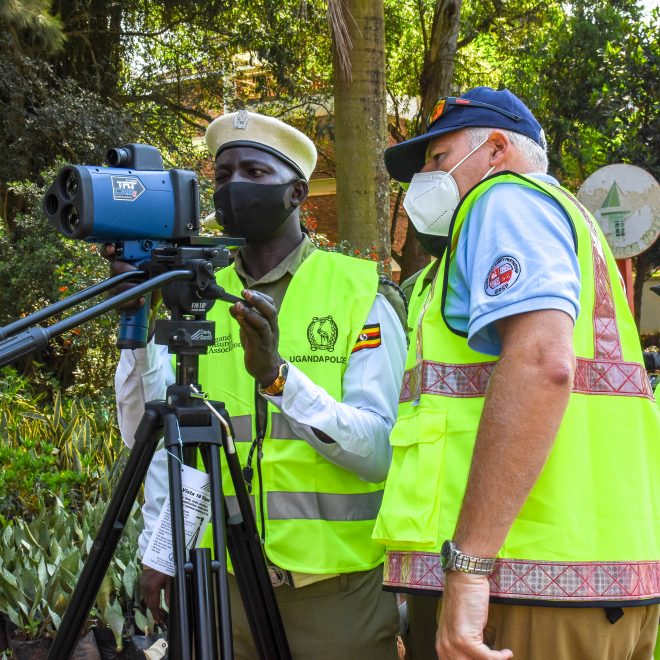
The GRSP Road Policing team also carried out other projects dedicated to road policing agencies. In partnership with the Asian Development Bank, the Road Policing team participated in a road safety capacity review for countries associated with CAREC-Central Asia Regional Economic Cooperation Programme. Based on GRSP enforcement recommendations, a pilot crash investigation training and deterrence theory workshop was conducted for law enforcement services in Uzbekistan and Kyrgyzstan, with 44 officers successfully completing the training.
Additionally, the Road Policing team continued to add to its suite of training and development programmes. With the support of UK Aid through the Global Road Safety Facility (GRSF), and implemented by the World Bank and GRSP, the Road Policing team designed and delivered a new traffic crash investigation and reporting course for police and enforcement agency personnel from low- and middle-income countries. The first course was successfully delivered to 70 police from the Pacific Island nations of Samoa, the Solomon Islands and Vanuatu, followed by a course in the Africa region with police from Uganda, Rwanda and Tanzania represented. In total, 147 officers successfully completed both training courses.
Accra, Ghana
Addis Ababa, Ethiopia
Dhaka North, Bangladesh
Ho Chi Minh City, Viet Nam
Kampala, Uganda
Kuala Lumpur, Malaysia
Kumasi, Ghana
Maharashtra State, India



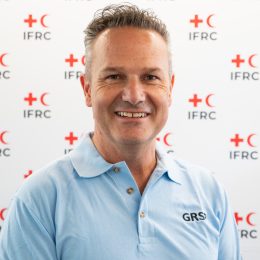
Our road policing capacity building team capably rose to the challenges that the global pandemic continued to present in 2021 in which our ability to deliver in-person, on-the-ground capacity building training was impacted in the various locations in which we operate. Pleasingly, however, our work continued to expand and evolve with the enrolment of new cities into the BIGRS programme and with the inclusion of new activities such as a traffic crash investigation and reporting course and implementation of GRSP’s inaugural Road Policing Executive Leadership Course, offered under the auspices of the suite of Global Road Safety Leadership Courses. I congratulate each and every member of our team for their resilience, flexibility and willingness to ‘think outside the box’ to ensure that our much-needed leadership, expertise and guidance positively contributed to the outcomes achieved as a result of our capacity building work in 2021.
Brett Harman
Asia Pacific Manager
Road Policing Programmes and Road Safety Projects
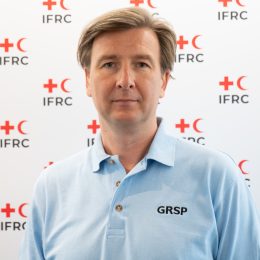
The year of 2021 was another year of challenges for the GRSP Road Policing team, as pandemic constraints continued to determine how the Road Policing Capacity Building programme (RPCB) was implemented. However, it should be highlighted with satisfaction that the approach to remote training that we adopted was very well-received by the participating police officers, which was reflected in the post-training surveys. We also had a very important moment in the implementation of GRSP road policing activities when new members joined the team in 2021. New senior officers quickly and smoothly put themselves into the implementation of the programme and strengthened relations with local BIGRS teams and the traffic police representatives in the cities where RPCB was being implemented. Certainly, this was one of the success factors of GRSP in building the organizational, technical and tactical capacity of the traffic police services.
Marcin Flieger
Road Policing Programme Manager
The Advocacy and Grants Programme completed ten years in 2021 successfully supporting road safety organizations in various countries to advocate for evidence-based road safety policies. The programme is made possible with support from Bloomberg Philanthropies and is a key part of the Bloomberg Philanthropies Initiative for Global Road Safety (BIGRS). Over these ten years, the Road Safety Grants Programme has supported 120 grantee organizations in 18 countries with 172 grants totaling nearly 15 million American dollars. The programme has 52 active grants in 13 countries and held two competitive grant rounds in 2021.
The Advocacy and Grants Programme completed ten years in 2021 successfully supporting road safety organizations in various countries to advocate for evidence-based road safety policies. The programme is made possible with support from Bloomberg Philanthropies and is a key part of the Bloomberg Philanthropies Initiative for Global Road Safety (BIGRS). Over these ten years, the Road Safety Grants Programme has supported 120 grantee organizations in 18 countries with 172 grants totaling nearly 15 million American dollars. The programme has 52 active grants in 13 countries and held two competitive grant rounds in 2021.
Throughout the years, the Road Safety Grants Programme has supported successful road safety advocacy campaigns through the work of grantees in a range of countries. Grantees achieved significant and notable successes with funding and technical support from the programme. Examples of successes include significant road safety policy progress in Cambodia, Vietnam, Kenya, India, Philippines, Mexico, Tanzania and many other countries.
A recent publication estimated that Bloomberg Philanthropies-funded road safety interventions have saved 97,148 lives up until 2018 and will save a projected additional 214,608 lives by 2030. Legislative changes accounted for 75% of the estimated 311,758 lives to be saved by 2030. This is a tremendous outcome that demonstrates the importance of the many significant contributions made by organizations that have received funds through GRSP’s Road Safety Grants Programme to support their advocacy efforts in improving laws that focus on reducing speeding and drink driving, and promoting the use of helmets, seat belts and child restraints.
The programme has also focused on building capacity of grantee organizations in the areas of road safety, advocacy and project management. Along with supporting reputed and established road safety organizations, the programme has supported the process of growth of several grantee organizations from modest beginnings to becoming champions in road safety advocacy.
In 2021, the programme continued its work of supporting road safety advocacy in 17 countries of the world (including 15 countries under the current programme, plus the two countries where the programme is concluding its activities).
GRSP provided recommendations for including evidence-based road safety measures on key behavioral risk factors in the Road Transport Rules 2022, which are being considered by the government in the process of finalization of the Rules. GRSP grantees made significant progress toward emerging as an effective road safety advocacy coalition by holding sessions on strategic planning and developing objectives and strategies for the coalition.
Grantees provided comprehensive recommendations on the National Plan for the reduction of traffic deaths and injuries (PNATRANS) launched by the National Traffic Department.
Shanghai People’s Congress mandated the use of helmets by e-bike drivers and passengers with penalties (effective 1 May 2021) — an effort that started with BIGRS city project and GRSP grantees in 2017. Fujian Province passed the country’s first Child Safety Seat Use Regulations as part of the implementation of the Minors’ Protection Law and the State Council passed the China Child Development Outline (2021-2030), which included a new chapter on “Child and Safety” promoting road safety legislation and specifically the use of CRS and helmets.
GRSP effectively worked with grantees to conclude their projects advocating for stronger vehicle safety standards. Grantees produced several important technical documents on vehicle safety to support ongoing advocacy efforts.
The newly approved Transit Bill reflected some advances regarding risk factors, for instance, establishing speed limits not exceeding 30km/h in urban areas. Following a setback in eliminating the license points system, GRSP provided a detailed technical review containing recommendations for grantees to advocate against this setback.
The Ministry of Transport (MOT) held its first consultative meeting with road safety stakeholders with support from the new GRSP grant.
In September, the central government notified the National Road Safety Board, the lead agency responsible for all aspects pertaining to road safety and traffic management, advising central and state governments. The final rules have incorporated important suggestions by the coalition, such as the appointment of the board through a selection committee.
GRSP grantees achieved a major success as the General Law of Mobility and Road Safety was passed in the Senate in December, with substantial reflections of GRSP inputs submitted through the grantees.
Several policy documents (sub-policies and regulations) were released by the relevant government agencies required for enforcement of the Child Safety in Motor Vehicles Act. GRSP provided regular technical inputs through the grantees.
The Road Safety Coalition of Uganda (ROSACU) was developed with support from GRSP and other international partners. The coalition involves all active GRSP grantees.

In the Advocacy and Grants Programme, we measure our successes through the achievements of our local partners in their advocacy for evidence-based road safety policies in countries. From that perspective, the programme has had some notable successes over the ten years of its existence. Ultimately, what matters is saving lives and preventing serious injuries on the road, and we believe we have been able to contribute toward that goal in several low- and middle-income countries. This is the key factor that keeps us motivated in our work, even in the challenging situations posed by the global pandemic.
Taifur Rahman
Manager, Advocacy and Grants Programme
Members of GRSP are part of a globally recognized network of like-minded organizations committed to improving road safety, both within their organizations and beyond the business gates. Whether from the private sector, government or civil society, GRSP members benefit from insights into the latest thinking, including research and examples of replicable good practice. Members collaborate with business peers across their value chains and from other industries to develop and scale up solutions to shared road safety challenges. Members also enjoy access to an extensive multi-sector network of partners to develop and implement road safety projects in the cities and communities in which they operate.
Each year the GRSP team works closely with members, individually and collectively, to identify and deliver a range of actions designed to progress the road safety mission of the members, the GRSP and the broader road safety community. Such actions include:
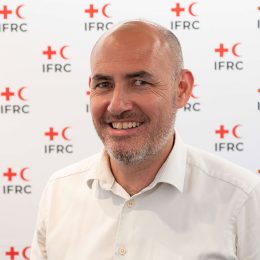
It is a great privilege to work so closely with our members, each a thought and action leader in road safety and sustainable mobility. From global multi-nationals to technology partners and not-for-profits, the reach of our collective work is both staggering and humbling. The GRSP takes great pride in its ability to foster and maintain meaningful partnerships with such high calibre organizations, many such partnerships evolving and growing over many years, and even decades.
Michael Chippendale
Manager, Communications, Membership and Project Support
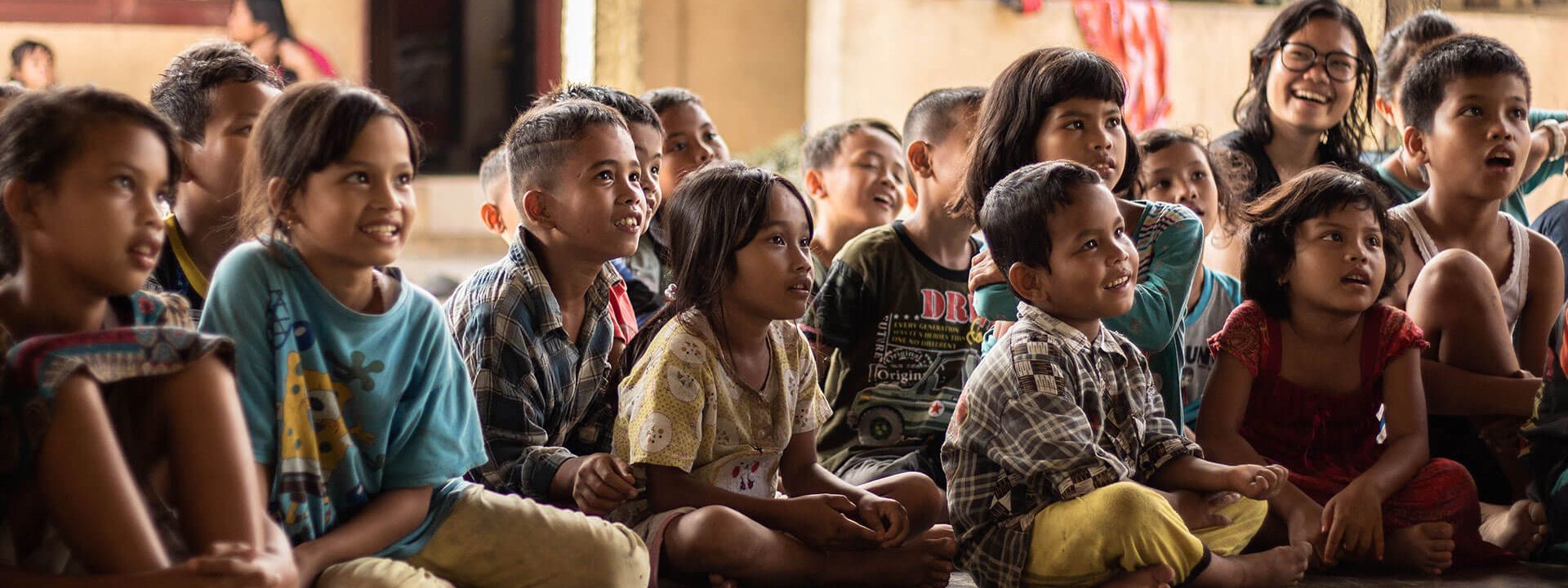
Last year has been a complex one for all programmes working in schools. The COVID-19 pandemic that has swept the world has disrupted the education of millions of children globally. Schools closed and distance programmes were put together in a rush leaving students and families to navigate unfamiliar situations; and this was for the countries and communities where digitalization was strong. Where the digital divide is greatest, students simply interrupted their learning.
VIA, the structured road safety education programme funded by Michelin Corporate Foundation and TotalEnergies Foundation was also affected by these global developments.

Last year has been a complex one for all programmes working in schools. The COVID-19 pandemic that has swept the world has disrupted the education of millions of children globally. Schools closed and distance programmes were put together in a rush leaving students and families to navigate unfamiliar situations; and this was for the countries and communities where digitalization was strong. Where the digital divide is greatest, students simply interrupted their learning.
VIA, the structured road safety education programme funded by Michelin Corporate Foundation and TotalEnergies Foundation was also affected by these global developments.
Nevertheless, thanks to the strength of the partnerships developed with local implementors, and the commitment of all parties to continue an effective and impactful programme, the GRSP managed to support old and new implementations limiting the disruptions brought by the pandemic.
By the end of 2021, over 24,000 students had been reached by the VIA programme for a total engagement of over 4,500 teaching hours across more than 25 countries.
Towards the end of the year, as vaccination rates increased and the grip of the pandemic started to loosen up, schools began re-opening.
This was the positive signal that both GRSP and the founders were hoping for. In fact, shortly after this trend stabilized, GRSP, TotalEnergies Foundation and Michelin Corporate Foundation committed to the Acceleration Programme. This entailed heavier investments on a restricted number of countries (Brazil, India, Mexico, Kenya, and South Africa) with the aim of contributing to reaching a total number of 100,000 students by the end of 2022 with at least a VIA implementation of six teaching hours covering key aspects of road safety.
The Acceleration Programme, together with the other VIA implementations scattered around the globe, will continue adjusting to the pandemic situation to ensure structured and evidence-based road safety education to the maximum number of children and young adults possible.




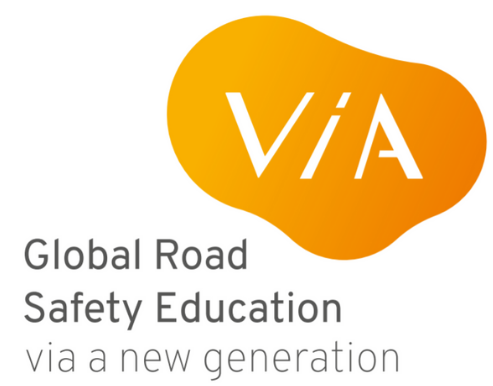


The year 2021 marked the second year of GRSP’s work with Bridgestone (China Asia-Pacific) on a three-year pilot of a regional road safety initiative. The initiative is part of a bold ambition to demonstrate the collective impact of a coordinated approach to road safety which seeks to build the road safety capacity of the Bridgestone teams regionally, and implement and monitor evidence-based projects at a country and community level in ten countries.
As part of the initiative, GRSP gathered and shared with the Bridgestone teams key road safety data relevant to the region and country, as well as data referencing specific risk factors and risk groups to help teams accurately target programmatic content. Over the course of the year through four tailored sessions of GRSP’s ‘Road Safety Essentials’ training, the capacity of teams was strengthened to identify, implement and monitor impactful road safety actions such as the flagship launch in China of ‘Safe to School – Safe to Home 2.0’ – a ready-to-implement, comprehensive child and community road safety programme designed, tested and refined by GRSP and partners over the last decade.



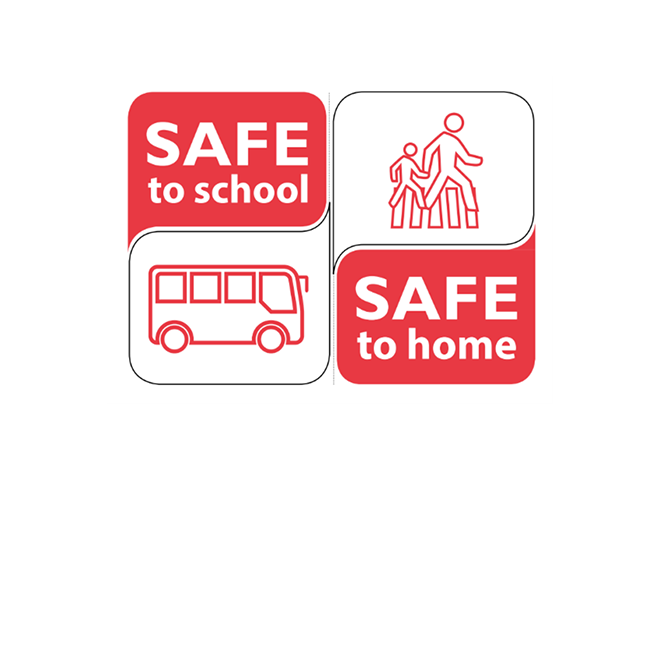
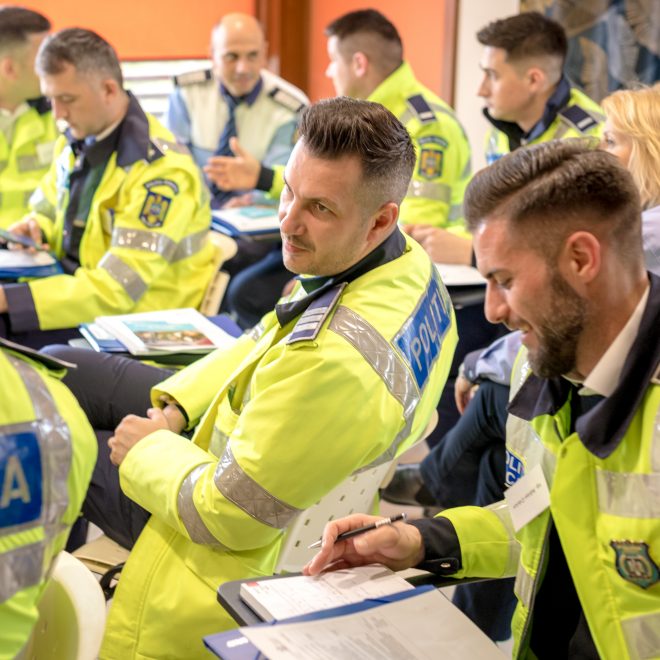
The Global Road Policing Network (GRPN) is an initiative of GRSP’s Road Policing team that was launched in September 2021. The development of the GRPN commenced after the GRSP received frequent requests from police officers at all levels, and from every continent, to be connected and to share good practice.
The Network aims to provide information on the most effective road policing initiatives, contribute to the international body of knowledge on effective road policing, link individuals and organizations within the road policing space to share emerging trends and initiatives, as well as promote road policing that adheres to the principles of being ‘procedurally fair and just’.
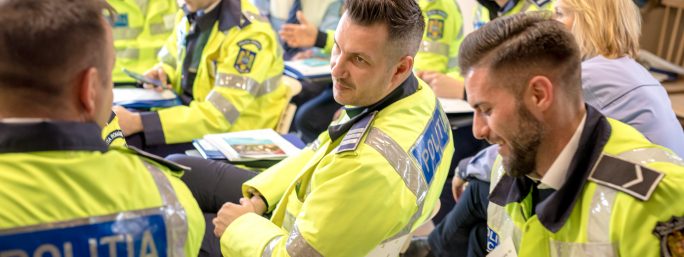
The Global Road Policing Network (GRPN) is an initiative of GRSP’s Road Policing team that was launched in September 2021. The development of the GRPN commenced after the GRSP received frequent requests from police officers at all levels, and from every continent, to be connected and to share good practice.
The Network aims to provide information on the most effective road policing initiatives, contribute to the international body of knowledge on effective road policing, link individuals and organizations within the road policing space to share emerging trends and initiatives, as well as promote road policing that adheres to the principles of being ‘procedurally fair and just’.
Moreover, the GRPN was established for the purposes of promoting the highest standards of ethical behaviour and undertaking road policing that is free of discriminatory practice.
In order to fulfill said goals, registered users receive a quarterly newsletter produced by our Road Policing team; however, the GRPN welcomes member contributions in the form of articles, letters and comments.
Additionally, the Network offers access to a range of road policing resources, such as publications by the GRSP, the World Health Organization (WHO) and the Global Road Safety Facility (GRSF), together with informative and insightful videos.
Find everything you need to know about our Global Road Policing Network right here.
Being an integral part of the International Federation of the Red Cross and Red Crescent Societies (IFRC), in 2021 the GRSP worked closely with 11 National Societies across the globe.
As IFRC’s reference centre on road safety, GRSP provides road safety technical knowledge, leadership, and vision, and builds the capacity of National Societies to prevent people from becoming crash victims and not only to support those suffering from the effects of road trauma.
This holistic view of road safety is increasingly adopted by National Societies, who work tirelessly to support affected communities and health systems in both reactive and preventive ways.
Together with our National Society partners, new and innovative ways to run projects have been put in place, with new digital technologies becoming an integral part of our standard delivery services. In doing so, even if physically far, we managed to work closely and with greater synergy, demonstrating flexibility and dedication to alleviating human suffering.
With the pandemic situation, National Societies were presented with a range of changing health challenges in 2021; however, GRSP still successfully engaged with many on evidence-based projects to support the reduction in road-crash death and injury.

GRSP partnered with the Asian Development Bank (ADB), World Bank Global Road Safety Facility (GRSF) and the International Road Assessment Programme (iRAP) to run the third module of the Road Safety Capacity Building programme (RSCB), with a focus on safer infrastructure. In total, 1,329 people from more than 47 countries registered for the series, with an average of more than 500 participants attending each of the sessions. The series included a practical activity assignment, and presentations from a range of international experts and case studies from throughout Asia and the Pacific.
The RSCBP aligns closely with:

GRSP was enlisted by the World Bank to undertake a ‘rapid assessment’ of the Bangladesh Highway Police and Dhaka Metropolitan Police in readiness for a road safety programme being considered for the Dhaka to Chittagong Highway. Furthermore, the Road Policing Capacity Building team was engaged by the World Bank to provide specialist policing advisory and implementation support to the Uttar Pradesh (India) Core Network Development Project (UPCRNDP) focusing on road safety activities.
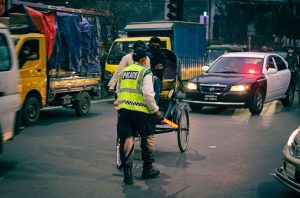



*The funding trend over the 2011-2021 period illustrates GRSP's success at attracting and increasing funding in ever-changing market conditions.
Note: Some year-to-year fluctuation is related to the up-front receipt of funds to support multi-year interventions.
